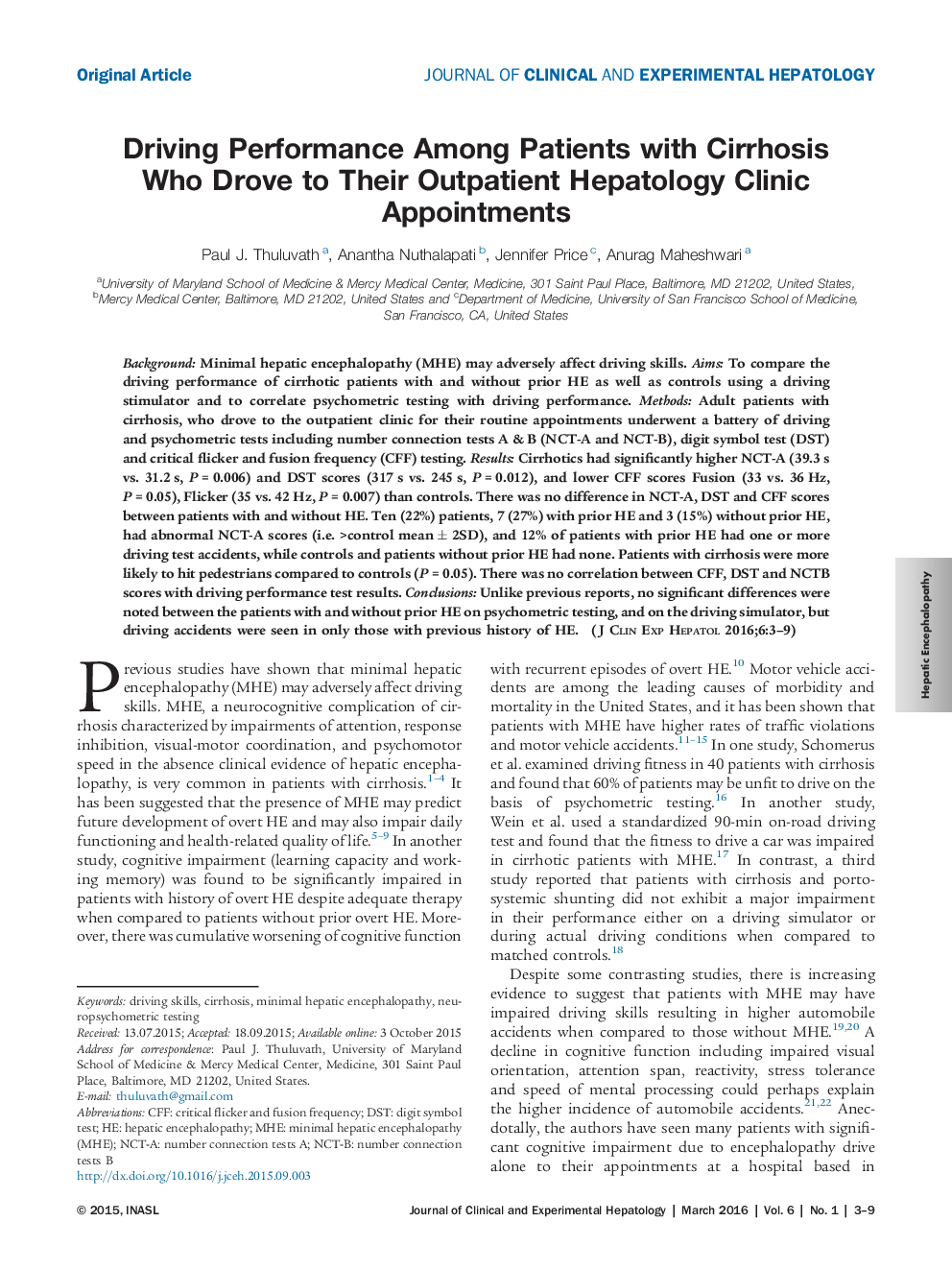| Article ID | Journal | Published Year | Pages | File Type |
|---|---|---|---|---|
| 3338567 | Journal of Clinical and Experimental Hepatology | 2016 | 7 Pages |
BackgroundMinimal hepatic encephalopathy (MHE) may adversely affect driving skills.AimsTo compare the driving performance of cirrhotic patients with and without prior HE as well as controls using a driving stimulator and to correlate psychometric testing with driving performance.MethodsAdult patients with cirrhosis, who drove to the outpatient clinic for their routine appointments underwent a battery of driving and psychometric tests including number connection tests A & B (NCT-A and NCT-B), digit symbol test (DST) and critical flicker and fusion frequency (CFF) testing.ResultsCirrhotics had significantly higher NCT-A (39.3 s vs. 31.2 s, P = 0.006) and DST scores (317 s vs. 245 s, P = 0.012), and lower CFF scores Fusion (33 vs. 36 Hz, P = 0.05), Flicker (35 vs. 42 Hz, P = 0.007) than controls. There was no difference in NCT-A, DST and CFF scores between patients with and without HE. Ten (22%) patients, 7 (27%) with prior HE and 3 (15%) without prior HE, had abnormal NCT-A scores (i.e. >control mean ± 2SD), and 12% of patients with prior HE had one or more driving test accidents, while controls and patients without prior HE had none. Patients with cirrhosis were more likely to hit pedestrians compared to controls (P = 0.05). There was no correlation between CFF, DST and NCTB scores with driving performance test results.ConclusionsUnlike previous reports, no significant differences were noted between the patients with and without prior HE on psychometric testing, and on the driving simulator, but driving accidents were seen in only those with previous history of HE.
